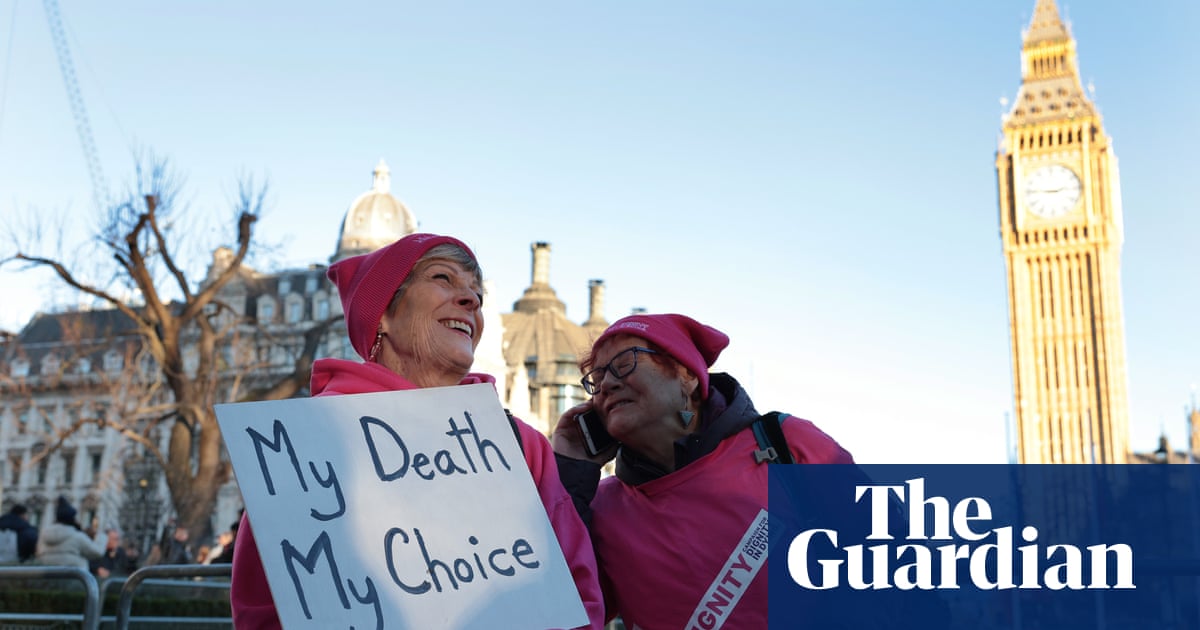MPs in favour of assisted dying have privately raised concerns about the number of colleagues reconsidering their support amid growing splits on the committee scrutinising new legislation.
One Tory source said they believed at least five Conservative MPs who had supported the bill at the last vote were likely to withdraw support at the next parliamentary stage. “If that translates across, I think we are looking at around 30 dropping out,” they said.
A Labour MP on the committee said they were extremely concerned about the pressure its members were under, blaming a “toxic” social media environment in the aftermath of public hearings about the bill.
A number of committee members have raised concerns about social media attacks on members and those giving evidence. “I have serious concerns about how some of the evidence we heard has been portrayed online and as a result I think we have the potential to lose significant support,” one member said.
Another member said they were concerned “quite a lot” of the second reading support would melt away, and that the bill could fall at its third reading. They said they believed some MPs who supported the principle would find a reason why the bill in its current form would not work.
“That would be a real shame,” they said. “There is a danger of some people allowing the perfect to be the enemy of the good, and there will never be a perfect bill.”
More than 200 amendments have been tabled to the bill – which passed with a majority of 55 in November – with potentially hundreds more expected over the coming weeks. Several committee members said there were real fears they would not have enough time to engage properly with all the amendments.
Kim Leadbeater, who introduced the private member’s bill, tabled a number of government-drafted amendments this week, a sign the government is taking a muscular approach to closing potential holes in the bill, while ostensibly remaining neutral on the issue.
Two key areas of dispute on the committee are the role of the high court in the process of requesting an assisted death – and whether the bill’s scope should be extended beyond just those adults who have a terminal illness and less than six months to live.
A number of committee members, including the most high-profile Conservative backer Kit Malthouse, believe the bill should be altered to remove the signoff from a high court judge and replace it with an expert panel. This could include a specialist lawyer, a social worker and a psychiatrist with expertise in mental capacity and coercion.
One committee member said they believed there were considerable concerns within government about the high court judge requirement.
A former supreme court judge has told MPs that applications for assisted dying should not need high court approval. Lord Sumption said the requirement “infers a protection that is largely illusory and undoubtedly very time-consuming”.
Leadbeater has said she will not allow any removal of the “judicial element” of scrutiny – a phrase that some opponents believe means she is open to some changes. “Kim is very clear that the bill has the strongest protections and safeguards anywhere in the world and she would not support any changes that would weaken the bill,” a source close to Leadbeater said.
The other amendment that has considerable support from the pro- side of the committee was proposed by the Liberal Democrat MP Tom Gordon, with support from Labour, Green and Conservative MPs. Leadbeater, however, had previously ruled out such a change.
after newsletter promotion
The amendment would allow those with a neurodegenerative illness, such as Parkinson’s, to access an assisted death with 12 months to live – in addition to the bill’s current provision which is for those with a terminal illness with six months to live.
“For those with neurodegenerative conditions, in their last six months, it may be too late for them to engage in the bureaucracy of applying,” said Gordon.
Rachel Hopkins, a Labour MP on the committee, said she would back the change. “I can see why this amendment is needed. Our assisted dying law should be a compassionate one, and where that means people with different terminal conditions need a different approach, I support that.”
Leadbeater has been under significant pressure over the makeup of the committee and the way it has taken evidence.
On Thursday, the shadow Commons leader, Jesse Norman, criticised the procedure in the house, saying it “left a host of important questions entirely untouched” and accusing the government of “quietly and wrongly standing behind this private member’s bill”.
“The membership is disproportionately weighted towards supporters of the bill,” he said. “The schedule has been highly congested with back-to-back sittings that do not allow MPs to prepare … All these things are shocking attempts to undermine and short-circuit the proper scrutiny of the legislation.”
Lucy Powell, the Commons leader, said it was “extremely regrettable and unadvised of the shadow leader to use his very privileged position at the dispatch box today to give such a political, one-sided and misleading account”.
Powell said the committee was weighted to reflect the balance of support among MPs and said Leadbeater had taken the uprecedented step for a private member’s bill of hearing evidence from experts in public. She said the government had “a responsibility to ensure that any bill that is passed by this house is workable and operable”.












